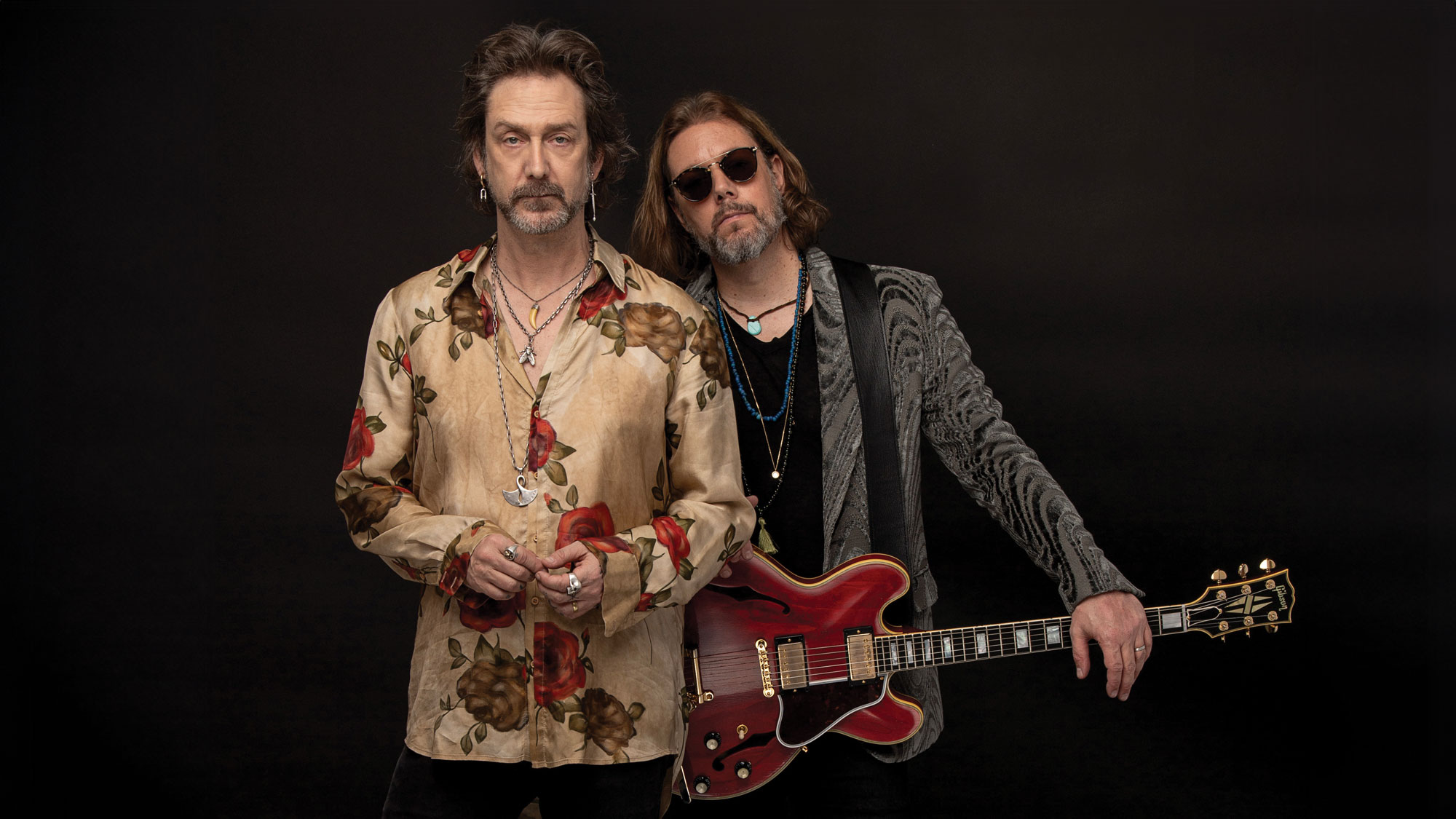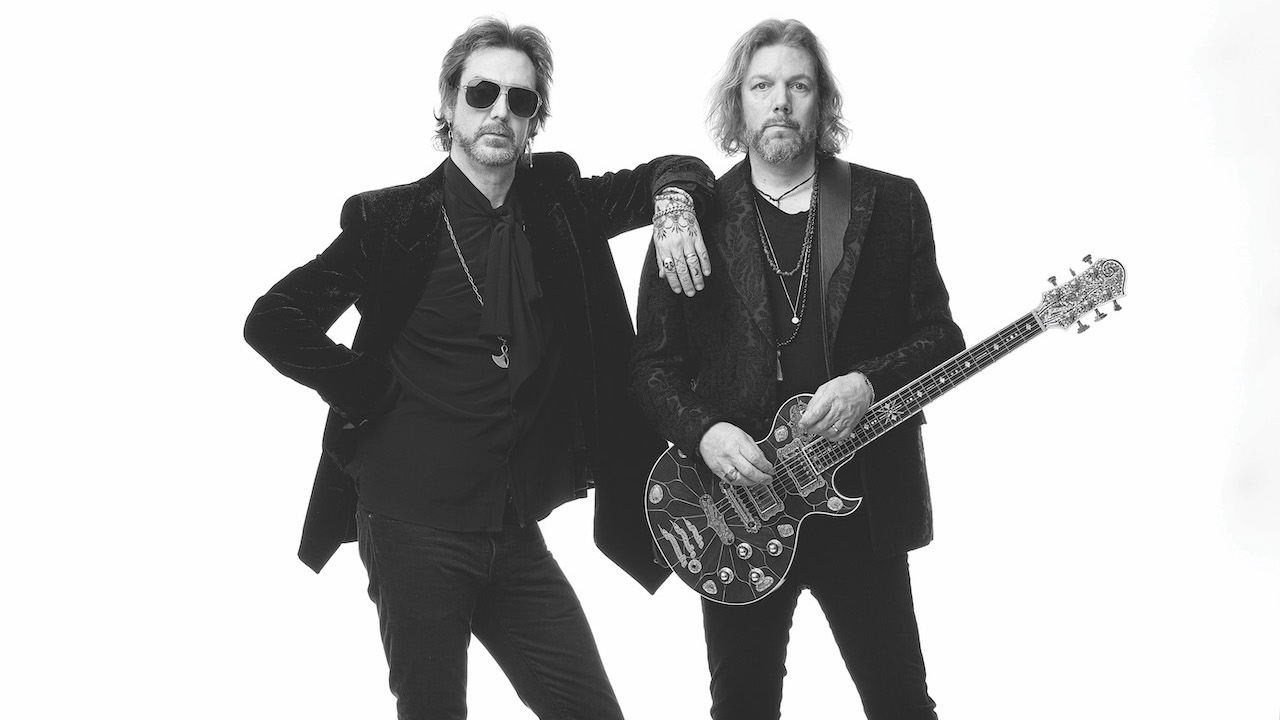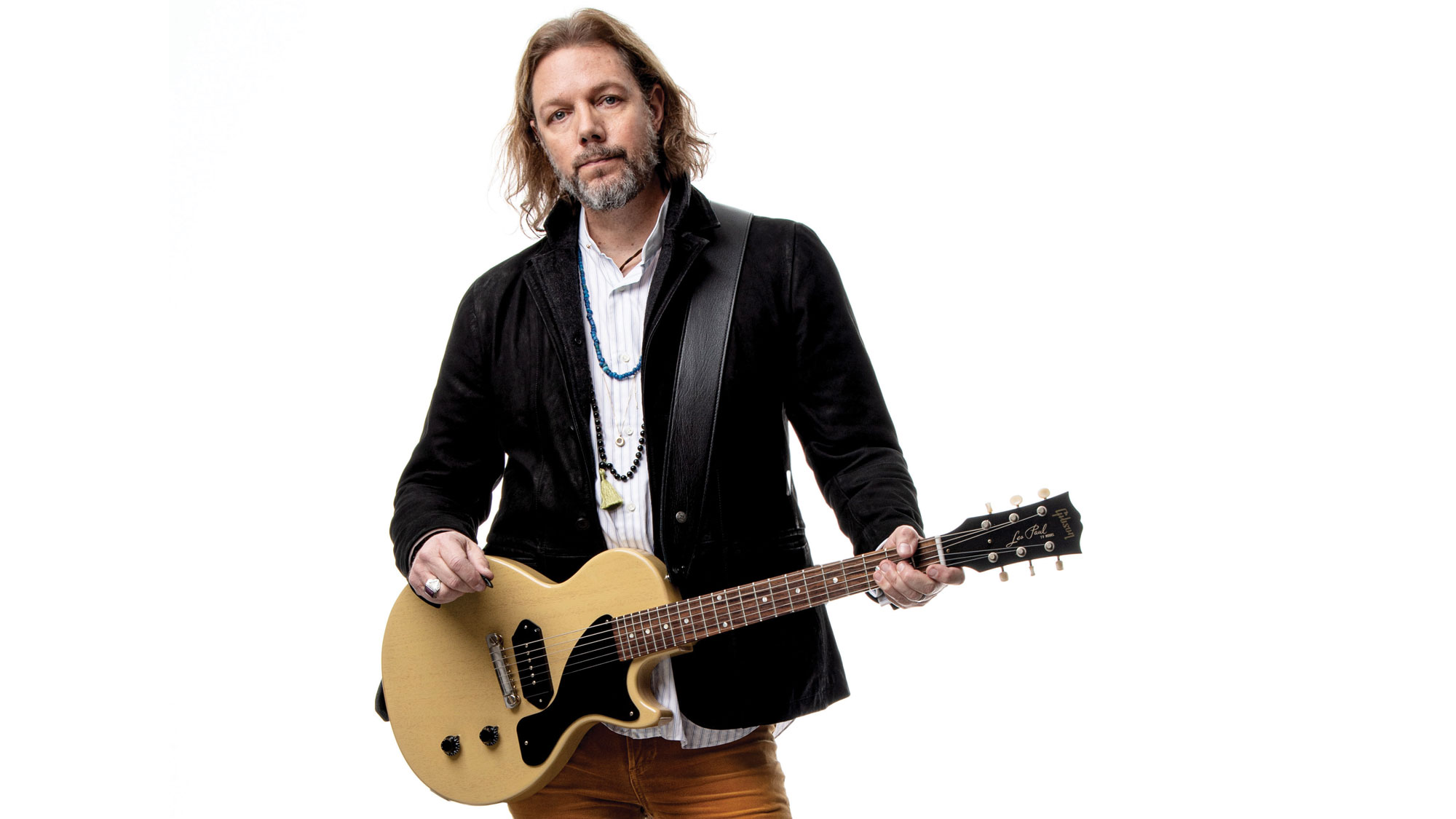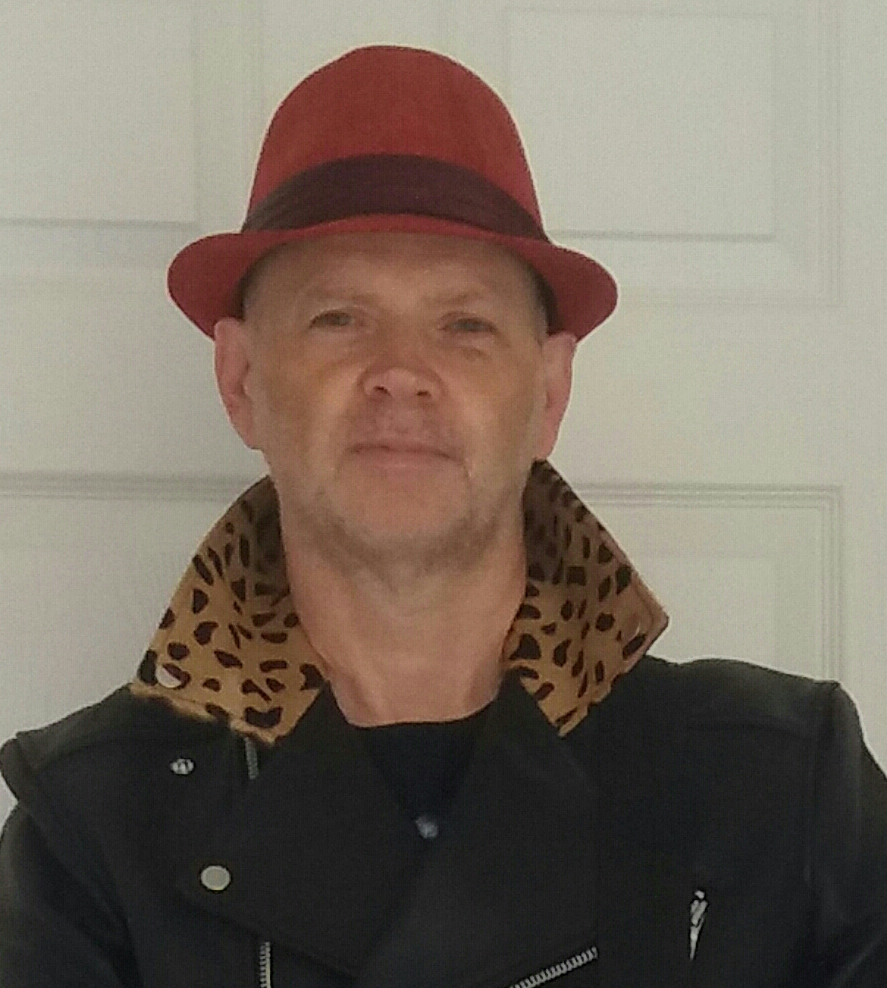“You can put the best solo in the world in an average song and nobody is going to care. Put an average solo in a great song and you’ve still got a great song”: Rich Robinson on why he reunited the Black Crowes – and revitalized their guitar lineup
Toxic band member behavior drove the Robinson brothers apart – but it also brought them back together. Rich Robinson details the challenge of playing in 15 different tunings, how a flood made his Les Paul Goldtop sound better, and why Nico Bereciartua is just the guitarist the band needs

The Black Crowes have had a tumultuous history. Numerous musicians have passed through their ranks, and brothers Chris and Rich Robinson’s battles with each other – verbal and physical – are legendary.
It’s been 40 years since the earliest incarnation of the band first came together. Only Rich and Chris remain from Mr. Crowe’s Garden, the name the band was using right up to the point that they signed their record deal with Def American in 1989.
While the media often has reported on the volatility of inter-band relationships, the Robinson brothers have dealt with the issue by adopting a real-world perspective on the immense challenges that global success brings to a pair of teenagers, barely out of school, who suddenly find the world at their feet.
Rich remembers how their life was turned upside down.
“By the time I was 18 and graduating high school, I’d written a lot of the songs for that first album. But, you know, I’m a teenager. What the fuck do I know about anything? All of a sudden, we put this record out and it sells seven million copies and I’m gone for 12 years.
“We went from playing clubs in Atlanta to 12 people to playing in Moscow with AC/DC in front of a million people. You go through that in a period of 18 months, how do you handle that? People can deal with failure, but in a way, it can actually be harder to deal with success when it’s so big and comes so quickly.”
The band have just released their first album in 14 years, Happiness Bastards, a record that sees them revisit many of the elements that made their first two albums – Shake Your Moneymaker (1990) and The Southern Harmony and Musical Companion (1992) – essential listening for anyone who likes their rock ’n’ roll cut through with a hefty dose of Southern swagger.
All the latest guitar news, interviews, lessons, reviews, deals and more, direct to your inbox!
Rich is excited at the prospect of taking the new record out on tour with the latest lineup of the band, which includes their new guitarist, Nico Bereciartua, and is feeling fired up about the long-term future of the Black Crowes.

Fans have been waiting a long time for a new album.
“Yeah, it’s been a while. We had the luxury of a year and a half during Covid to start writing songs. We didn’t really plan on making a record, per se; we just realized we were going to have an indefinite period of down time.
“I decided to start writing some songs, and Chris did the same, then we traded our ideas back and forth, which was how it started. After that, we started the Shake Your Moneymaker tour. By the time we got to the end of the tour, we knew it was the right time to do another album.”
Do you find it difficult to finish a record, always tweaking and second-guessing what you’ve done?
“I’m very much a ‘leave well enough alone’ person. I believe in putting it down, then saying it’s done, you know?”
Do the songs change much once you get into the studio?
“Not really. The main things are always in place; it’s usually just production ideas. Arrangements never really change a lot. We will maybe add more backing vocals or something, but that’s really just extra sauce on what we already have. We’re not averse to a little exploration, but usually we know what we’re aiming for.”
Did you record much that didn’t make the cut?
“There were a couple of extra songs, but typically for us, an album is dictated by the songs. We’ll know which ones work together or sound right as a whole, and that selection process almost looks after itself. It’s all about the flow of the record and making sure everything flows in the right direction.”
How do you and Nico divide your guitar parts?
“Firstly, there’s the meat of the song, which is always pretty much what I do. I played most of the solos on this record, which isn’t something I typically did in the past, before my solo stuff, so that was kind of cool. Nico is a great slide player, so it’s a case of bringing him in to do what he does when the song requires it. He really has an understanding of how I play.”
What were your main guitars and amps on the album?
“I used a few 335s – a ’51, a ’52 and a ’68. They always sound great. I also used some Teles, and I have a ’56 Les Paul Special that I used a ton; it always sounds amazing. There was a great ’59 TV Junior [TV Yellow Gibson Les Paul Junior], a couple of Gretsches, including a White Falcon, plus a Zemaitis and a Dan Armstrong. For amps, I started a small amp company called Muswell. We make one-off amps if someone calls to order one.
“They’re based on a ’68 [Marshall] Bluesbreaker that I have, which is the best-sounding amp I’ve ever had. In fact, I used one of the Muswells and the actual Bluesbreaker for a few tracks. I also used an old white Fender amp that was like a Princeton, some Tweed Deluxes and the Silver Jubilee that I’ve had since ’88. It was all over the first album and subsequent tours.”
What about Nico?
“He uses an SG Custom a lot, plus another straight SG and a great Les Paul. For amps, he was playing a Super Reverb and an Ampeg V Series.”

The opening cut, Bedside Manners, has a great stomping groove. It sounds like it must have been a blast to record.
“There’s a lot of energy in that song. It was actually the last song I wrote for the album. That was one of those songs that just came very quickly, you know? As soon as I came up with the intro, I was away and that was it. It has a great vibe – I can’t wait to play it live.”
One line in the song – “With friends like these, who needs enemies?” – seems to be a pithy retort to various former band members who’ve been coming out of the woodwork to criticize you and Chris.
“Yes, exactly. [Laughs] It’s pretty funny.”
Wanting and Waiting has more than a hint of Jealous Again in the verses, which is a nice way to tie the album back to the heart of the band’s music.
My ’68 Les Paul Goldtop was damaged in the floods after Hurricane Sandy; I actually lost about 70 guitars in that flood
“Yeah, I totally see that. It has a different riff, though, which to me always makes me think of AC/DC, that fucking drive. That’s what it is, actually; it’s a driving song. That was the first song I wrote for the record.”
Follow the Moon has a hard-hitting riff that’s almost redolent of Led Zeppelin.
“Yeah, it does have some of that Zep punch. There’s some Zeppelin and also the Grease Band, who used to back Joe Cocker, and they made some records in their own right. There’s something of their vibe in there as well. That really cool Zeppelin-y chorus of guitars always sounds great to me.”
The solo on Cross Your Fingers has a fantastically warm, creamy, neck-pickup Les Paul tone.
“That’s in open C. It’s a hard tuning to solo in, though. The rhythm part is one thing, but I can’t really switch guitars for the solo, so it’s a little tricky. It was my ’68 Les Paul Goldtop. It was damaged in the floods after Hurricane Sandy [2012]; I actually lost about 70 guitars in that flood.
“I had it restored by RS Guitarworks [in Winchester, Kentucky], and it came back exponentially better than it was. I don’t know how they did that because they also worked on a 335 that was damaged, and it just wasn’t the same guitar anymore, which wasn’t their fault – it’s just the way the flood affected the guitar. The Goldtop, though, sounds and plays better.”
It’s strange to think that it’s been 40 years since you and Chris first teamed up to form a band.
“Yeah. We got big so quick, and Chris and I just grabbed ahold of that dragon and ran with it; we didn’t look back and we didn’t think about it. I think that created a dynamic unto itself.
“Not only a shift in dynamic between Chris and me as brothers, but also a shift in the band dynamic. How do we – as incredibly young and naïve individuals who were totally unprepared for what was happening to us – deal with the people around us and their agendas?”
Do you think the periods spent apart over the years gave you a perspective that enabled you to get back together again with a new energy?
As a result of that amazing level of success and pressure, we spent most of our lives in a toxic state of putting ourselves as brothers second or even third, when it should have been first
“As a result of that amazing level of success and pressure, we spent most of our lives in a toxic state of putting ourselves as brothers second or even third, when it should have been first.
“The fact that we stopped in 2013 definitely got us away from that place that we were in prior to the split. It enabled me to think about things and acknowledge that it’s easy for me to blame Chris 100 percent, and likewise – it’s easy for him to blame me 100 percent. That space definitely allowed me to see how I could have done some things differently.”
Did the process of playing solo and then forming Magpie Salute give you another perspective on band dynamics?
“After doing four solo albums and two solo EPs, then making two albums with Magpie Salute, to have those same band problems come back and [to experience] the same toxic band members’ behaviors, I thought, ‘Jesus, what the fuck is this? I might as well be with my brother!’ [Laughs]
“A lot of that was the impetus for getting back together, but when we did get back together, we really made a point to say that we wanted to do this right. We don’t want some sort of money-grab, one-off tour.
“We agreed that if we were going to do this again, we needed to put our relationship first and start from scratch. And also to find people who are positive and support us, and who want to succeed with us, instead of always trying to tear it down.”

Does it feel like you’re both in it for the long haul this time?
“Yeah, very much. The Magpie Salute was done anyway. Marc [Ford] and I started it, but old habits started to creep in, and some toxic behaviors started happening, so I didn’t want to deal with that stuff anymore. This is where my heart is, this is my lifelong body of work. With my brother, with this past and this future – this is where I want to be right now.”
You’ve been through a lot of guitarists in the band. What do you look for in a guitarist?
“Pretty much every position in the band has been through varying personalities and players. [Laughs] My belief is that the song is king. You can put the best solo in the world in an average song and nobody is going to give a shit. You put an average solo in a great song, and you’ve still got a great song.
“You play with different musicians and their contribution is a big part of making everything cohesive, but people’s personalities, their habits and their issues get in the way, and it can’t always stay the same.
“I always want someone to really serve the song. Sometimes people are in it for themselves – ‘Look what I can do!’ You have to say, ‘Dude, put the guitar down; there’s a song here.’ [Laughs]”
Guitarists often dedicate so much time to improving their soloing skills that they forget about mastering rhythm guitar, learning how to groove, keeping things tight and driving the song forward.
“Absolutely. Think about it – if you solo all the way through a song it just becomes white noise. There’s a thing about that position of guitarist in our band, where I think people don’t realize what the role is, and they take it upon themselves to play too much.
“Nico loves this band, he understands and respects what we are and what we do, and you can tell by his personality, his playing, his positivity and his friendship that he gets it. I’m thrilled to have him in the band.
“The same can be said about Culley [Symington], our new drummer. Again, he loves the band, respects the history and understands what he needs to do to lift the music. Same with Erik [Deutsch], our keyboard player.
“When we reference Simon Kirke or Ron Wood, they know what we mean; it’s the common language that moves the band forwards. Sven [Pipien, bass] and I have that language, you know. I’m really happy with where we are now as a band.”
With the ever-changing personnel, does it help keep things fresh or would you prefer a longterm stable situation?
“I guess that’s a yes and no answer. I would rather have a consistent lineup for the long haul. The changing keeps us on our toes, but when you get a band that plays a hundred shows together, that’s when they start sounding like a band and the magic happens.
“It’s cool to get a new person with a new energy, but I would prefer to have a stable lineup where we really forge something special together. It’s fine if someone wants to move on; I want people in the band who have reverence for the songs, people who are happy and who want to be here.”

It’s fascinating to watch you play through some of your songs on YouTube. The parts are extremely complex and dense. Do you actually create the song in that way?
“Yeah, man. That’s how I’ve always written, and that’s what was so amazing about Eddie Harsch [keyboards] back in the day. He was such a gifted musician; he could always just come in and fit. When there’s that much going on in my guitar part, I can see how that would be difficult.
Nick Drake was always one of my favorite guitar players; I was trying to fit Nick Drake into Keith Richards’ playing
“I always wrote like Nick Drake – in my own mind. He was always one of my favorite guitar players; I was trying to fit Nick Drake into Keith Richards’ playing. [Laughs]
“How do you square those two things? That was what I was trying to solve. The way Nick worked wasn’t really that unlike someone like Mississippi Fred McDowell or Bukka White or Furry Lewis for me. That symphony of sound coming out of one guitar – that’s how I always wrote.
“With Nico being a huge Crowes fan, he’s aware of how the band fits together, when to play, when to lay out or whatever. He sees what a part needs. The way that Chris sings off what I do rhythmically, that push and pull, is probably the essence of our sound.”
Do you think open G was what enabled you to find that way of constructing your parts and writing songs?
“Well, to go deep into that tuning can be difficult. You can strum chords and they’ll sound cool, but to go further and find interesting suspensions, that’s the key to that sound. That set me on the path to the point where I use about 15 different tunings now. They range all over the place.
“The first open tuning I used was E, which is what I used to write She Talks to Angels. I’ve done a lot of experimenting; I use an open C tuning with a C octave between the six and fifth strings, which I used on a few songs on this album. I came up with an open D7, which is interesting. Of course, DADGAD is a great one. There’s something about the timbre of the way open tuning strings resonate. It really inspires me.”
Do you find it easy to get your head into the different tunings when you’re changing tunings so much, or does it require a lot of focused thinking?
“It definitely requires a focus, particularly if you’re soloing. [Laughs] You can’t resort to familiar patterns or places on the neck, so it definitely keeps you on your toes. A lot of the open tunings are difficult to solo in; you can do cool things with the rhythm guitar parts, but you can’t do any of the things that you would typically do if you were soloing in standard tuning. I like the challenge, though. If something sounds good, it makes me want to dig in and figure it out.”
Looking back over your catalog, what are the highlights for you, and how do you see Happiness Bastards fitting in with that history?
Three Snakes is one of my favorites. We weren’t trying to make a commercial record, and we sure as hell didn’t
“Shake was the springboard for everything, and I love it and respect it, but I think Southern Harmony was the first time that we stepped into our own skin. We were firing on all cylinders as a band; we’d just come off 18 months on the road, playing 350 shows. We went right in to record that album and made it in eight days. It’s live, and it felt that way. I love that record for that reason.
“Three Snakes [1996] is one of my favorites. We weren’t trying to make a commercial record, and we sure as hell didn’t. [Laughs]
“I also really like Lions [2001]. There’s some cool shit on that record. Some people don’t like that album, but I love it. Lay It All on Me is a great song, and there’s Soul Singing – some great stuff. I’m not thrilled with how the album sounds, but I do like the songs.
“Warpaint [2008] has some good songs, and I feel that the new album fits perfectly in the midst of those records. It’s not like all of a sudden we have a DJ in the band, and we’ve gone off on some bizarre tangent. It’s appropriate, it sounds classic but almost… modern wouldn’t be the word, but maybe fresh would be the best way to describe it.”
Is there another album in the pipeline?
“We’re not thinking that far ahead at the moment. We’re just thinking about the tour and looking forward to playing some of the new songs live for the first time. There’s a tremendous energy about the band, and I can’t wait to take that out on the stage.”
- Happiness Bastards is out now via Silver Arrow.
Mark is a freelance writer with particular expertise in the fields of ‘70s glam, punk, rockabilly and classic ‘50s rock and roll. He sings and plays guitar in his own musical project, Star Studded Sham, which has been described as sounding like the hits of T. Rex and Slade as played by Johnny Thunders. He had several indie hits with his band, Private Sector and has worked with a host of UK punk luminaries. Mark also presents themed radio shows for Generating Steam Heat. He has just completed his first novel, The Bulletproof Truth, and is currently working on the sequel.


![The Black Crowes & Ronnie Wood - Stay With Me [Live From The Greek Theatre] - YouTube](https://img.youtube.com/vi/wkb07sW74gY/maxresdefault.jpg)


